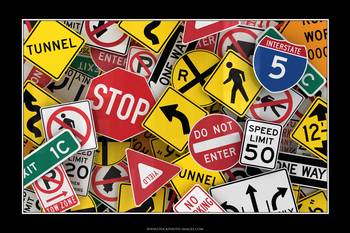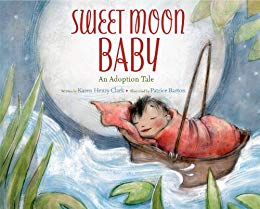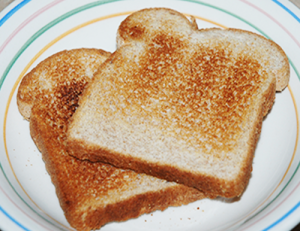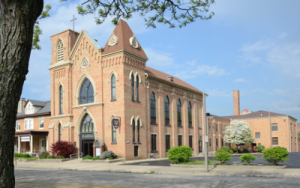 After living in big cities, Cliff and I deliberately retired to a one-stoplight town. Fighting traffic, standing in long lines, budgeting rising taxes, and deciphering endless signs took a toll.
After living in big cities, Cliff and I deliberately retired to a one-stoplight town. Fighting traffic, standing in long lines, budgeting rising taxes, and deciphering endless signs took a toll.
Not to mention always being anonymous.
After a few months in residence here, I was greeted by name three times on an afternoon walk. People in passing cars waved at me. I was known, surrounded by friendly faces.
Except in the library.
It became my universe at first. I joined their book club, donated an autographed copy of my picture book Sweet Moon Baby, and did an author event for them.

Then I lost my library card on a neighborhood walk.
We don’t have a self-checkout system, so I was told I could show my photo ID at the circulation desk. Once librarians knew me, they simply typed in my name without checking my ID, typically waving it away.
Then one day I returned a book, and while that librarian was in process, I remembered a book was on hold. As she removed it from the shelf, I mentioned I had no ID with me. She put the book back and said I could pick it up another day with my ID.
I thought she was teasing. We knew each other. No. She meant it.
I was anonymous again.
Thinking I was the only one who found this bizarre, I contacted librarian friends across the country.
Some laughed.
Some apologized.
Some were furious, remarking on questionable service to a patron with no negative record.
One offered, “Small town, small mind.”
Another responded: “Unbelievable” and insisted I speak with the administration. Because of her extensive library career, I did.
The board discussed the matter. I was informed of devious patron offenses, including book thefts, even though I’ve never doubted bad things happen in libraries. When I asked if the thefts specifically resulted from ID infringement of some sort, my question went unanswered. I was told the library was following state law. Proving my identity by ID card protected my personal information. That was not possible by verbal address verification when my account was pulled up on the screen by a librarian.
I considered this.
Whenever I pick up prescriptions, the clerk asks for verbal address verification, never photo ID. I questioned the pharmacist about violating the state code. She looked puzzled.
The same exchange at the bank. The teller said, “I know you.”
At the hospital: “You verified the information on my screen,” admissions replied. “I don’t need anything else.”
On voting day at the election board: “We want you to feel welcome to vote. Besides, you’re in our system. Right here,” the clerk responded as she pointed to my name on their list.
The post office when I pick up mail being held: “Why would I need your ID? I know you,” she said.
Policy adherence, as explained to me by the library administration, maintained a consistent experience for patrons. Yet in conversation with local library users, I’ve learned how inconsistently rules have been applied for years. In fact, this very issue has been raised by another dismayed patron who was similarly turned away at the desk.
This is not my first rodeo in the corral of change.
When I married in 1979, I went to the bank to have new checks printed. The teller began filling out the form: Mrs. Clifford…
I explained I had no intention of calling myself that. She was shocked. Discussion ensued. She consulted her supervisor who reported the board would decide my appropriate name since I was seeking a deviation from the policy. Finally, I was told a box would be printed with my name preference to see what would happen.
 For years I taught at a private high school where girls wore an antiquated uniform: box-pleated skirt and middy blouse. When students revolted against it in the early 1980s, I became their sponsor. Privately, administrators informed me the uniform was a necessary tradition that kept the female form from distracting boys. The fight took two years, but the students won.
For years I taught at a private high school where girls wore an antiquated uniform: box-pleated skirt and middy blouse. When students revolted against it in the early 1980s, I became their sponsor. Privately, administrators informed me the uniform was a necessary tradition that kept the female form from distracting boys. The fight took two years, but the students won.
When a local friend asked a librarian from another town about their policy, she was assured they followed the same rule. Nevertheless, she admitted if a known patron arrived without ID the book could be checked out anyway. That was always my point.
Not that statewide, enhanced library security is not noble, but my issue was a matter of common sense. Following an unnecessary policy by sending me home for my ID was absurd. A simple HOWEVER clause to the policy was the only thing needed.
 My favorite lesson on common sense (and HOWEVER clauses) occurred in the restaurant scene of Five Easy Pieces. Jack Nicholson’s character ordered an omelet with toast. The waitress refused to accept it, explaining omelets came with an English muffin or roll, not toast. No substitutions. No side orders. He courteously showed her the menu listed a chicken salad sandwich on toast. So he requested an omelet and chicken salad sandwich–hold the mayonnaise, butter, lettuce, and chicken and bring the toast.
My favorite lesson on common sense (and HOWEVER clauses) occurred in the restaurant scene of Five Easy Pieces. Jack Nicholson’s character ordered an omelet with toast. The waitress refused to accept it, explaining omelets came with an English muffin or roll, not toast. No substitutions. No side orders. He courteously showed her the menu listed a chicken salad sandwich on toast. So he requested an omelet and chicken salad sandwich–hold the mayonnaise, butter, lettuce, and chicken and bring the toast.
Our library recently doubled down, posting a sign stating a library card or photo ID had been required since January 2014. When has a sign stopped thieves? Library mayhem was never on my mind. I simply did not have any ID with me on that particular day.
Institutions can change and be better for it. Or refuse.
That bank, by the way, did not fail when it altered the name policy.
Nor did that school when they decided to update the dress code.
Both listened, re-considered, and allowed side orders of toast.

**ADDENDUM**
After months of wrestling this issue, Cliff and Maggie asked why something so small upset me. I answered, “It’s not small to me. It means something more.” They shrugged and urged me to move on.
But I kept spinning.
 I discovered the something more in discussion with a friend who has been on the ground floor of this library rodeo. I don’t know what she asked me, but I began talking about my parents’ experiences after we joined St. Paul’s United Church of Christ in 1960.
I discovered the something more in discussion with a friend who has been on the ground floor of this library rodeo. I don’t know what she asked me, but I began talking about my parents’ experiences after we joined St. Paul’s United Church of Christ in 1960.
My mother served on their library board. I don’t remember the exact issue, but she was furious over something about censorship. No other committee member saw her open-minded point. One afternoon she typed out a speech in our basement and delivered it in front of the fireplace to my father and me after dinner. We were impressed and encouraged her to hold her ground. At the next meeting, she presented her speech. Members confronted her for making a fuss over something so small. She resigned, remaining firm about literary freedom.
My father served as a deacon and ushered on Sunday mornings. He was in line on the fateful day when a black woman and her children showed up for the service. Every usher froze. Not my father. He escorted the family down the center aisle, seating them near the front. Gasps reverberated through the all-white congregation. Our phone rang for weeks while outraged members criticized his actions. He said God never spoke to him about the color of people who belonged in a church pew.
“There’s the reason,” my friend said. “Your parents showed you that right is right and wrong is wrong, even if it isn’t popular. You owe it to them,” she said.
My parents weren’t troublemakers. They simply saw how things, big or small, could be better.
Whether anyone applauded or not.
It’s hard to know where to begin with a response to this piece. Having ridden around this rodeo arena and similar ones with you for over forty years, I have watched many a horse try to throw you off. Key word is “try”, and rarely has that happened, if ever. A person of conviction is a truth you hold that is self evident. I appreciate and enjoy riding around with you and seeing you fling the lasso right over the heads of those of less integrity and conviction. What a good role model you are for Maggie and me, as well as those who pay careful attention.
LikeLike
Thank you, Cliff. Ringing in my head are your words as a school principal–At the end of the day you have to stand for something. I wouldn’t want to circle the wagons for a lifetime with anyone but you.
LikeLike
As a librarian I find it disturbing that this happened, Karen. It shouldn’t have happened to anyone, and certainly not to you. But it’s gratifying that you pressed the matter, and didn’t just shrug it off, whatever the outcome. You know deep down — and so should we all — that “small” matters can mean a great deal.
LikeLike
You and I began questioning the status quo together decades ago, so I know you understand being on the front line. In my research for this issue, I could not find anyone who sided with our library’s policy. I cast a wide net, too. Recently, I was at a nearby library to put a book on hold. Because it was taking her a long to search the system (My 2 last names can be problematic.), I asked if she needed my ID. She said, “No. Just verify the address.” There you have it. I’m left to think that there’s the law, and then there’s the way things are done. At the end of the day, it’s all about control, isn’t it?
LikeLike
I admit that I thought – as I read – that this is a small thing. You made me see more clearly with the two stories about your parents, that things can always be better.
LikeLike
Exactly. Change is initially startling to people and institutions, no matter the challenge, but when that door is opened, all kinds of better things are possible. (Whenever I can convince you, I know I’m on the right side. And this has been true since we were in grade school together.)
LikeLike
I really think the key to this, to your emotional response that still resonates in you, is in your own words. “I was anonymous again.” You were vulnerable to her acknowledging you. Or not. You moved to this wonderful small town, looking to be known. Recognized. A part of a community. And she took it away from you. How you get it back, how you decide not to give her that power, I have no idea. I have many instances I can think of that, if they come to me in the middle of the night, there is no hope of sleep. I just don’t know what to do with them, where to put them, how to diffuse those internal bombs…. I’m open to ideas. I guess I am responding to a sense that this is still somehow unfinished. It still bothers you.
I love the story of your father. He sounds like quite a force. And your mother. What wonderful role models.
And you have fought small battles but really they were huge, and risky and needed to be fought. those horrible uniforms spring to mind. And you fought for students. Fought hard. And I completely agree that you were right to pursue this. Small things do matter. I am reminded of that almost daily
LikeLiked by 1 person
Such honesty beautifully stated. Thank you for making me reflect even more deeply. In my lifetime of seemingly small battles in schools, businesses, and community agencies, I realize I search for the actual atmosphere beneath mission statements. When I discover that attitude of NO, I argue against it because I have witnessed what it does to the human spirit. I know what it did to mine. Our state is filled with small-town libraries. From this experience, I learned how important a library can be to me at this point in my life and that I can move on.
LikeLiked by 2 people
Dear Karen–You dug deeper. Well done, you. So many layers to your psyche and it is such a privilege to see you go through your geological dig and come up with treasure.
Your parents sound like they were wonderful, humane, caring people who could see through other people’s and institutions’ bull. That is a gift. If you didn’t care, you certainly couldn’t be and wouldn’t have been such a wonderful agent for change.
Cliff said it so well. You have integrity. For me, you have the ability to figure out, even in the smallest of instances, what makes common sense that will ultimately benefit your community. Perhaps I am reading more into this than necessary, but you have always struck me as someone who is real mensch. You do things that not only benefit you, but helps others too. You are good people.
Keep inspiring others to be good people too.
LikeLiked by 1 person
Thank you kindly for these important words. When I wrote this post, I didn’t include my experiences with the librarians after the ruckus, but that was revealing, too. I think I took this on because I know how I would have felt if it had happened to me when I was younger. I would have been upset and too embarrassed to ever return. People forget things–like library cards–and innocently believe it will be OK. But here, you can’t make that assumption.
LikeLiked by 1 person